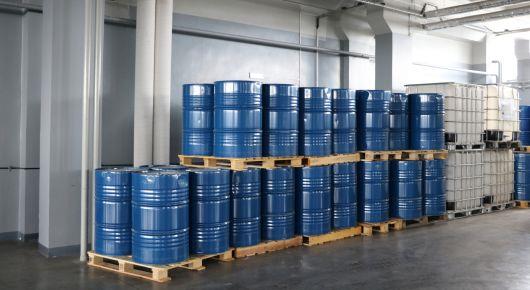Kazakhstan joins FAO–GEF effort on improved pesticide life cycle management

Kazakhstan joins the FAO initiative on improving pesticide lifecycle management and elimination of persistent organic pollutants, implemented in Central Asia and Turkey. The project is funded by the Global Environment Facility (GEF).
The presence of obsolete and unusable pesticides and their chemical identification is one of the acute problems in Kazakhstan’s agriculture.
Until the 1990s, pesticides were widely used in nearly all the country’s agricultural land – about 21 million hectares. In addition, significant areas were contaminated with pesticide waste. In the region, after the Russian Federation, Kazakhstan ranks second in terms of stockpiles of total persistent organic pollutant waste.
Strategy for disposal of obsolete pesticides
Under the project, Kazakhstan, as well as Azerbaijan, Kyrgyzstan, Tajikistan, and Turkey, together with partners, will destroy up to 900 tonnes of persistent organic pollutants and obsolete pesticides in environmentally sound ways, in addition to organizing rehabilitation of contaminated sites. FAO will work with the Ministry of Ecology, Geology and Natural Resources of the Republic of Kazakhstan to establish a national infrastructure for the destruction of persistent organic pollutant waste in the country. The parties will also work on strengthening institutional mechanisms and regulatory frameworks for the management of pesticides throughout their lifecycles.
First, the plan is to conduct a detailed national inventory of obsolete pesticide stockpiles. Experts aim to prepare a strategy for further disposal of persistent organic pollutant pesticides and clean-up of contaminated areas. When selecting the appropriate technology for the countries, FAO experts will provide technical support to governments for licensing and monitoring technology effectiveness during pilot work on the destruction of obsolete pesticides.
Switching to less harmful alternatives
In addition, the project is expected to contribute to reducing the use of conventional chemical pesticides by encouraging farmers to use alternative, less hazardous pesticides.
Improved pesticide regulations will encourage greater use of alternative, less hazardous pesticides for human health and the environment, increased monitoring of pesticide quality, and improved management of hazardous pesticides.
The project is also expected to reduce the risk of surface water contamination and soil degradation by switching to other methods of handling containers and raising awareness among the public and regulators. Ultimately, all these results can lead to reductions in releases of highly hazardous pesticides into the environment.
4 May 2022, Nur-Sultan, Kazakhstan
